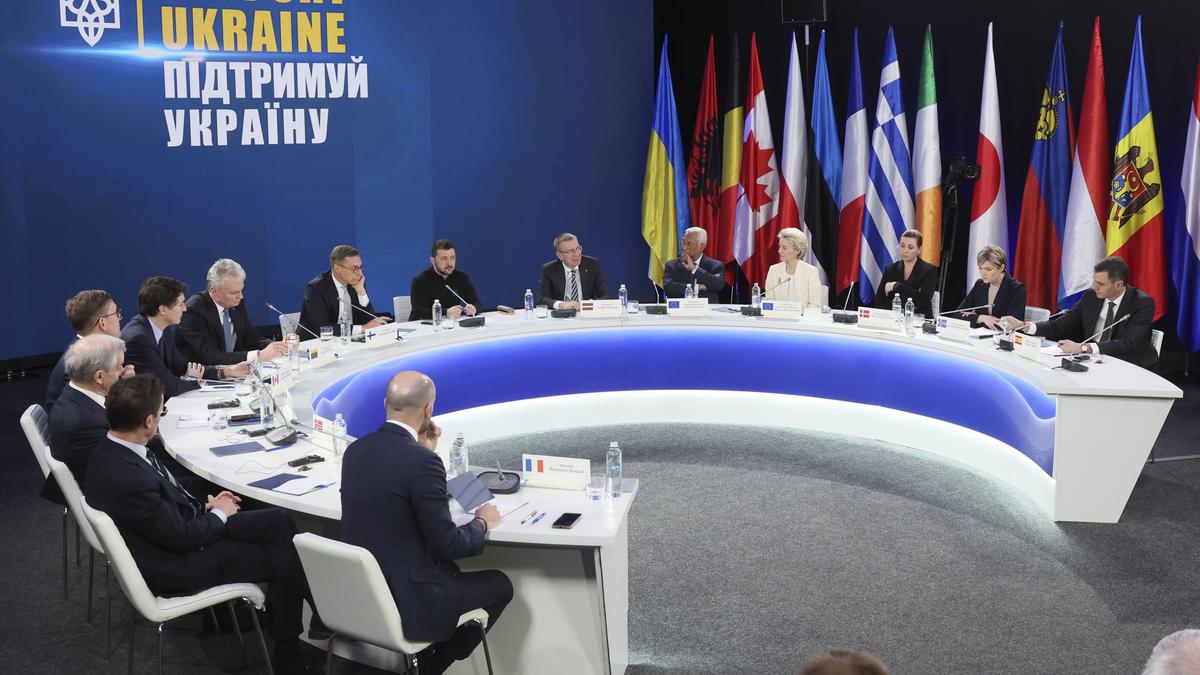
Indian companies added to list as U.K., EU announce new Russia-related sanctions
The Hindu
EU and U.K. impose new sanctions on Russian entities, impacting Indian companies, in response to Ukraine conflict.
The European Union (EU) and the U.K. marked the third anniversary of Russia’s invasion of Ukraine with a slew of additional sanctions related to Moscow and those doing business with it. Indian entities are among those impacted by these measures. The move came as several Western heads of government, including European Commission President Ursula von der Leyen, visited Kyiv in a show of support for Ukraine.
The 16th package of EU sanctions included 83 individual listings — 48 people and 35 entities, who were subject to an asset freeze. EU sanctions included new criteria for owners or operators of Russia’s “shadow fleet” of ships or those benefitting from Russia’s military-industrial complex, an EU statement said. The bloc added 74 vessels to its sanctions list.
Russia-Ukraine war: Full coverage
Another 53 new entities , including one new Indian entity, were found “supporting the Russian military-industrial complex or engaged in sanctions circumvention” according to a document released by the EU. The other non-Russian entities had origins in China (including Hong Kong), Kazakhstan, UAE, Uzbekistan, Türkiye and Singapore.
Totally, there are four Indian companies listed for EU sanctions. One of them, Pratik Corporation, is new to the list, with sanctions commencing from February 25, 2025.
The company, with a registered office in Mumbai, makes products for automotive applications and “asset management services for industrial applications” as per its website.
The other three entities are Innovio Ventures (sanctioned June 25, 2024), Triac Electronics (sanctioned December 17, 2024),) and Si2 Microsystems Pvt Ltd (sanctioned February 23, 2024).

According to the United Nations’ Conference on Trade and Development (UNCTAD), the underlying logic of credit rating agencies is to avert the information asymmetry between borrowers and lenders about the latter’s creditworthiness. It further explains that issuers with lower credit ratings pay higher interest rates – reflective of the greater associated risk with lending to them, than the higher rated issuers.

According to the United Nations’ Conference on Trade and Development (UNCTAD), the underlying logic of credit rating agencies is to avert the information asymmetry between borrowers and lenders about the latter’s creditworthiness. It further explains that issuers with lower credit ratings pay higher interest rates – reflective of the greater associated risk with lending to them, than the higher rated issuers.











